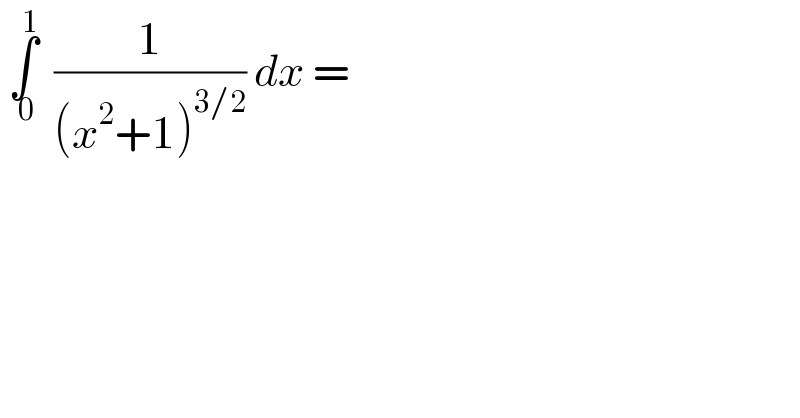
Question and Answers Forum
Question Number 55089 by eso last updated on 17/Feb/19

Commented by maxmathsup by imad last updated on 17/Feb/19
![let I =∫_0 ^1 (dx/((1+x^2 )^(3/2) )) changement x =tant give I =∫_0 ^(π/4) ((1+tan^2 t)/((1+tan^2 t)^(3/2) ))dt = ∫_0 ^(π/4) (dt/((1+tan^2 t)^(1/2) )) =∫_0 ^(π/4) (cos^2 t)^(1/2) dt =∫_0 ^(π/4) cost dt =[sint]_0 ^(π/4) =((√2)/2)](Q55090.png)
| ||
Question and Answers Forum | ||
Question Number 55089 by eso last updated on 17/Feb/19 | ||
 | ||
Commented by maxmathsup by imad last updated on 17/Feb/19 | ||
![let I =∫_0 ^1 (dx/((1+x^2 )^(3/2) )) changement x =tant give I =∫_0 ^(π/4) ((1+tan^2 t)/((1+tan^2 t)^(3/2) ))dt = ∫_0 ^(π/4) (dt/((1+tan^2 t)^(1/2) )) =∫_0 ^(π/4) (cos^2 t)^(1/2) dt =∫_0 ^(π/4) cost dt =[sint]_0 ^(π/4) =((√2)/2)](Q55090.png) | ||